Industrial Robots for Manufacturing
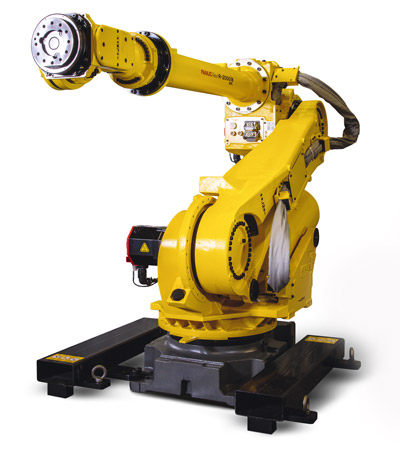
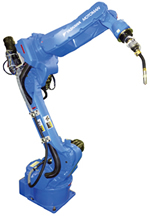
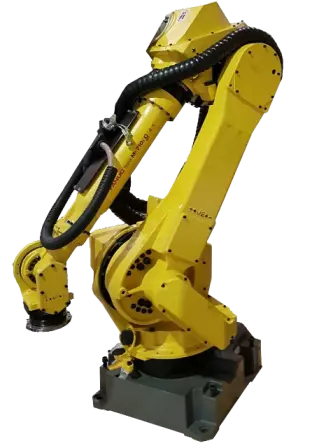
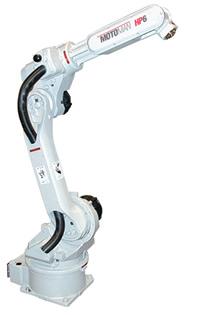
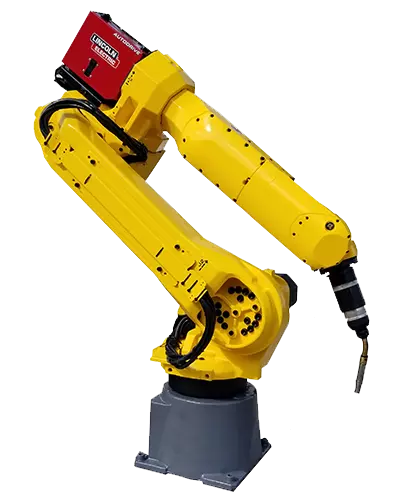
Industrial robots have been used for manufacturing since the 1960s. Their original intent was to automate dangerous or repetitive tasks, relieving workers from undesirable jobs. However, advancements in robotic technology has expanded their capabilities, allowing them to automate most manufacturing processes. Today it is quite common to see the FANUC Arcmate 120ic or the ABB 6640 along factory floors.
Industrial robots can be used for both semi-automated and fully automated manufacturing. Semi-automated manufacturing involves using a combination of industrial robots and workers. A FANUC M-10ia may be used to automate part of a manufacturing process while workers carry out other tasks. Semi-automated manufacturing may also involve using operators to tend to robotic workcells by loading and unloading parts while an articulated robot performs the application inside the workcell. Semi-automated manufacturing is favorable to those with limited budgets, those just getting started with robotic automation, or for those in which automating an entire production process is not feasible.
Fully automated manufacturing runs solely on automated machines. This can be entirely with industrial robots or with a combination of robots and other automated machinery such as CNC machines. This approach is referred to as lights-out manufacturing since a facility can literally run in the dark as there is no direct human involvement. Advanced robotic sensors, vision systems, and offline software have made fully automated manufacturing a reality. Lights-out factories are the factories of the future and many are already transitioning to this model.
Industrial robots can be used to automate most production related processes in manufacturing. Welding automation is the most common application for robots. Other popular applications for robots in manufacturing include material handling, machine tending, painting, palletizing, packaging, assembly, material removal, sealing, and inspection. Six axis robots excel at repetitive tasks. However, they are also suitable for tasks with variability with the addition of advanced options such as vision.
There is a wide variety of industrial robots that are used for manufacturing automation. From small robots to large robots, robots on track systems, and even those with dual arms. Robots are considered industrial if they have a multipurpose manipulator capable of moving along three or more axes that is automatically controlled and reprogrammable. Articulated, delta, SCARA, cartesian, and cylindrical are the main types of industrial robots used for manufacturing.
Just as there are a variety of types of industrial robots used in manufacturing there are a variety of robotic brands. However, most robots used in manufacturing come from four brands, FANUC, Yaskawa Motoman, ABB, and KUKA. FANUC is considered the leader when it comes to robotic automation. There are over 500,000 of their signature yellow robots installed in factories around the world. The FANUC R-2000ib is one of their most successful robots. Yaskawa Motoman is close behind FANUC. They also have several hundred thousand robots operating across numerous industries. The Motoman MA1440 is one of their popular arc welding robots. ABB manufacturers several multipurpose industrial robots including the ABB 2600-12. While KUKA’s robots are particularly common in automotive manufacturing. Other robot brands used for manufacturing include Universal, Staubli, Mitsubishi, and Denso.